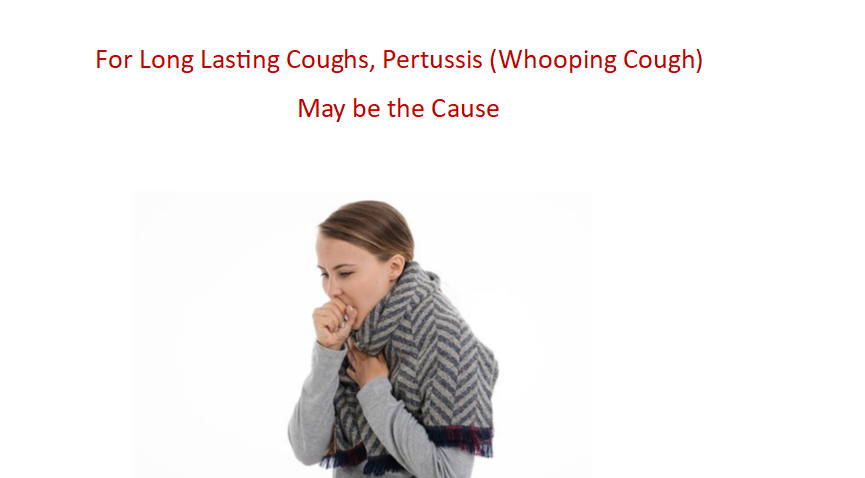There has been a recent surge in cases of Pertussis, commonly known as “Whooping Cough,” throughout the Northern Illinois and Collar Counties areas. Will County Health Department Epidemiologist Alpesh Patel says that while it is certainly important to keep track of Influenza this time of year, Whooping Cough is something that can strike year round. And with the recent change of weather, as dropping temperatures are keeping everyone inside a lot more, there can be more transmission of it.
“Pertussis is always out there and we have seen outbreaks over the years, such as a sudden surge in 2006 or a record high of over 48, 000 cases nationwide in 2012,” Patel explained. “It’s dropped some since then, but now the numbers are stabilizing again. Often people hear the coughing and think it’s just seasonal allergies, asthma, or the flu. But when the persistent mild or moderate cough has lasted two weeks, you really need to think about Pertussis.”
The CDC (Centers for Disease Control and Prevention) describes Whooping Cough as “uncontrollable, violent coughing which often causes a person to need to take deep breaths, which results in a ‘whooping sound.’” While immunization against Pertussis is the best protection, Patel says this respiratory disease, spread by exposure to cough droplets, can still be transmitted to anyone who is exposed to it.
“It’s best to always check with your doctor on whether you are up to date on immunizations and if you might need a booster. Ask your medical provider to check for this. It’s a simple nasal swab test. Anyone with Whooping Cough or exposed to someone who already has it should seek immediate medical attention and get treatment with the five-day dosage of antibiotics, as well as restricting themselves from work or common activities, to minimize transmission until completion of the antibiotics dosage.”

A persistent mild or moderate cough lasting two weeks could be Pertussis, also known as “Whooping Cough.” A simple nasal swab test can determine if a person has it.
In addition, Patel says medical providers need to be open to the possibility that a familiar problem might actually be Pertussis. “They might be examining someone with a personal or family history of colds, the flu, asthma, or seasonal allergies; and dismiss the ongoing mild or moderate cough as the usual symptom they’ve seen before. But a cough that’s lasted for several days should not be ignored. It’s an easy test to do.”
It’s also important to remember that Whooping Cough can strike all different age groups at any time of year. And since it is spread by droplets, the usual advice about covering our mouths and washing our hands frequently certainly applies here. “More than anything, get tested for it, ask your doctor about your immunization status, and control the transmission of it,” Patel concluded.
For more on Pertussis please visit this CDC link: https://www.cdc.gov/pertussis/index.html.

